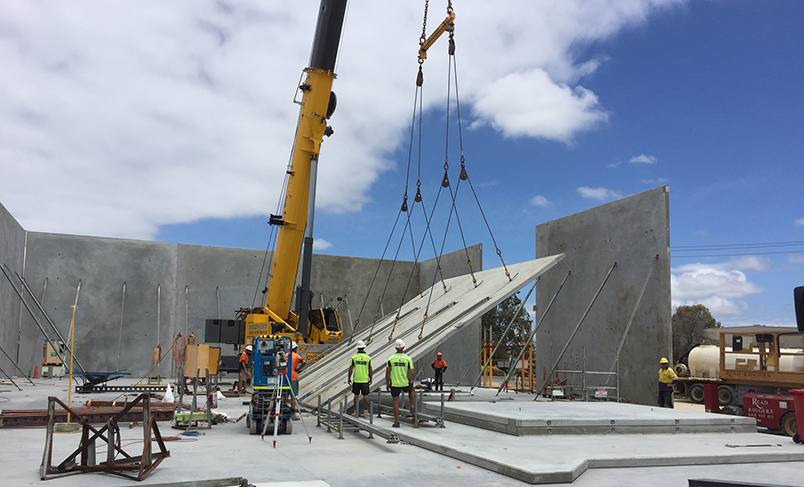As a self-employed handyman, your work involves a variety of tasks, from minor repairs to major renovations. While you strive to provide excellent service, accidents and unforeseen circumstances can happen. To protect your business and financial well-being, it’s important to have the right insurance coverage.
This blog post will guide you through the essential types of insurance and important points to consider while buying a handyman insurance policy.
Personal Accident Insurance

Personal Accident Insurance provides financial protection in the event of accidental injury, illness, or death. It’s specifically designed to cover individuals who work independently, such as handymen, and offers a range of benefits to help mitigate the financial impact of unforeseen circumstances.
When considering personal accident insurance, keep these factors in mind:
- Coverage for Minor and Severe Injuries: Policies should cover a wide range of injuries, from minor cuts and bruises to severe accidents that may result in long-term disability.
- Financial Support: In the event of an accident, the policy must provide lump sum payments or weekly benefits to cover medical expenses, lost income, and other related costs.
Income Protection Insurance

Income Protection Insurance provides a regular income stream if you’re unable to work due to illness or injury. This policy is particularly important for independent contractors as it ensures a steady income flow, preventing financial hardship during challenging times.
When considering Income Protection Insurance, keep these factors in mind:
- Income Coverage: Ensure the policy covers a significant portion of your income to maintain your lifestyle.
- Waiting Period: This is the period before benefits start. Choose a waiting period that aligns with your financial needs and recovery expectations.
- Benefit Period: This determines how long the policy will pay out benefits. Consider your long-term financial goals and choose a suitable benefit period.
Tools and Equipment Insurance

As a self-employed handyman, your tools and equipment are essential assets to your business. However, these tools are susceptible to theft, damage, and loss.
Tools and equipment insurance covers losses due to theft, fire, accidental damage, and natural disasters.
When choosing a Tools and Equipment Insurance policy, consider the following factors:
- Comprehensive Coverage: See if the policy covers the tools you use for your handyman business.
- Replacement Cost Coverage: Opt for a policy that covers the replacement cost of your tools, rather than their depreciated value.
- On-Site and Off-Site Coverage: If you transport your tools to different job sites, ensure the policy covers them both on-site and off-site.
Click here to choose one of the best handyman insurance in Australia.
Public Liability Insurance

Public Liability Insurance protects you from legal claims arising from accidents or injuries that occur on your worksite, or as a result of your work.
As a handyman, you often work in clients’ homes or businesses, where accidents can happen. If someone is injured on your worksite or due to your negligence, you could be held liable for medical expenses, legal fees, and other damages. Handyman public liability insurance provides financial protection against such claims.
When choosing a Public Liability self employed insurance policy, consider the following:
- High Coverage Limits: Ensure the policy has high coverage limits to handle potential large claims.
- Broad Coverage: The policy should cover a wide range of accidents, including slips and falls, property damage, and bodily injury.
- Regular Review: Review your policy periodically to ensure it meets your evolving business needs and industry standards.
Additional Considerations for Self-Employed Handymen
Here are some additional considerations for self-employed handyman while choosing an insurance policy:
- Coverage Limits: The coverage limits should be enough to cover potential claims. Consider the potential costs of accidents, injuries, and property damage. Higher limits may provide more comprehensive protection, but they may also increase your premium.
- Deductibles: It is a prefixed amount that the handyman has to pay before the insurance company pays their share. A higher deductible can lower your premium, but it also means you’ll have to pay more upfront in case of a claim.
- Exclusions: is what is not covered. Some policies may exclude certain types of work or accidents. Make sure the policy aligns with your specific business needs.
- Claims Process: Ask about the insurer’s claims process. A streamlined claims process can help you get compensation quickly and efficiently.
- Policy Cost: Compare premiums from different insurers to find the best value. Consider the coverage offered, the insurer’s reputation, and the overall cost.
As a self-employed handyman, your work is your livelihood. Don’t let accidents or unforeseen circumstances derail your dreams.
Tradies365: Your Trusted Insurance Partner

At Tradies365, we understand the unique insurance needs of handymen in Australia. We offer tailored insurance solutions to protect your business and assets. Our dedicated team of experts will guide you through the complex world of insurance, ensuring you have the right coverage to safeguard your livelihood.
Contact us today to discuss your insurance needs
OR
Click here to get a free quote.
Read More
Handyman Vehicle Insurance: Protecting Your Mobile Workshop
Extremely affordable Handyman Insurance: Finding the Right Online Provider
Note: The material offered here is for informational purposes only. It does not constitute legally binding advice and should not be a substitute for a consultation with an insurance expert.
